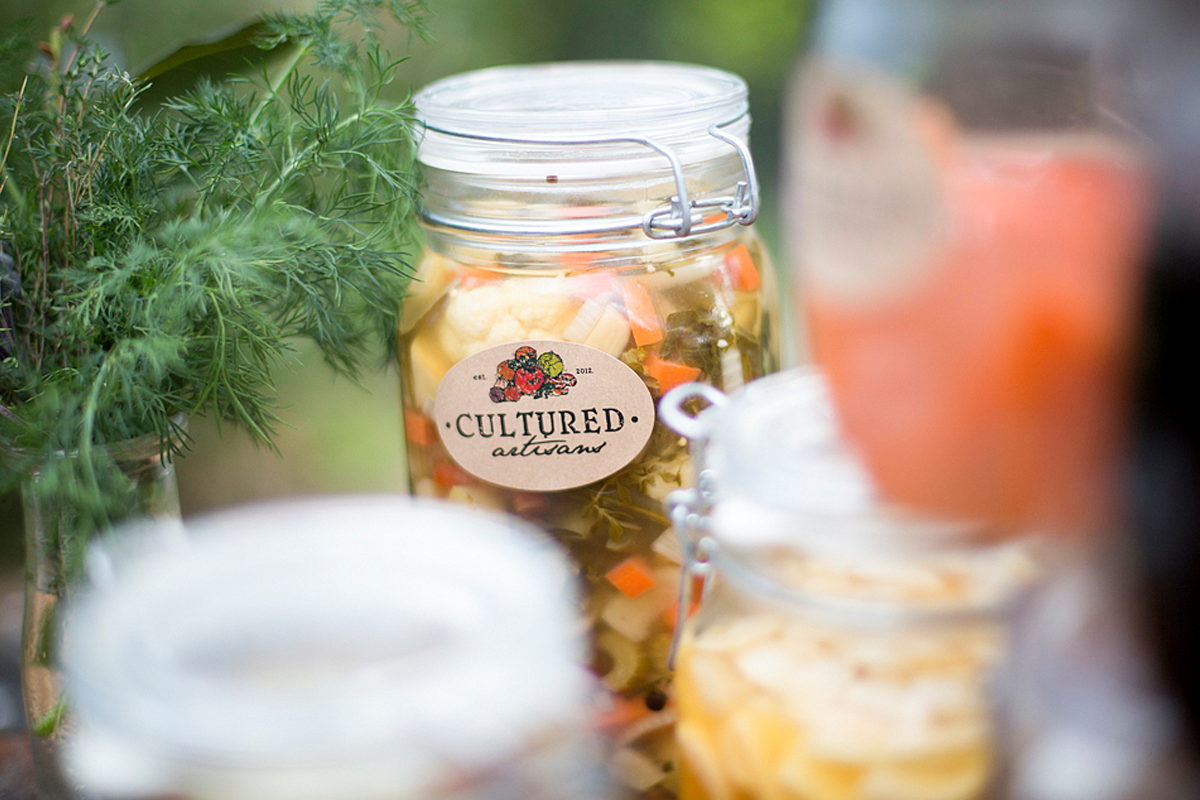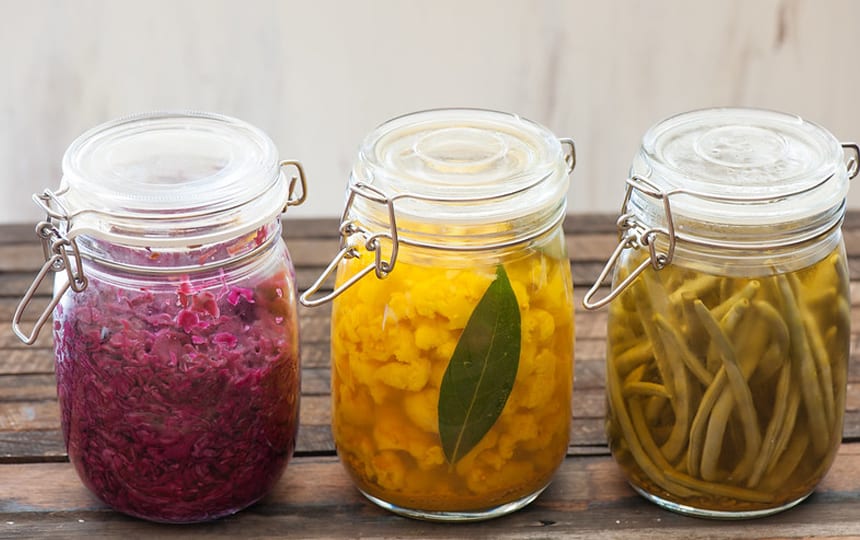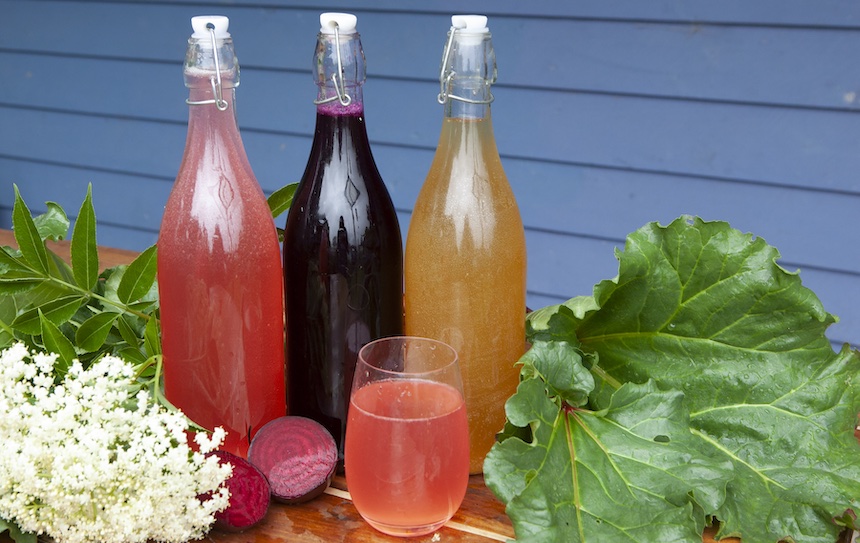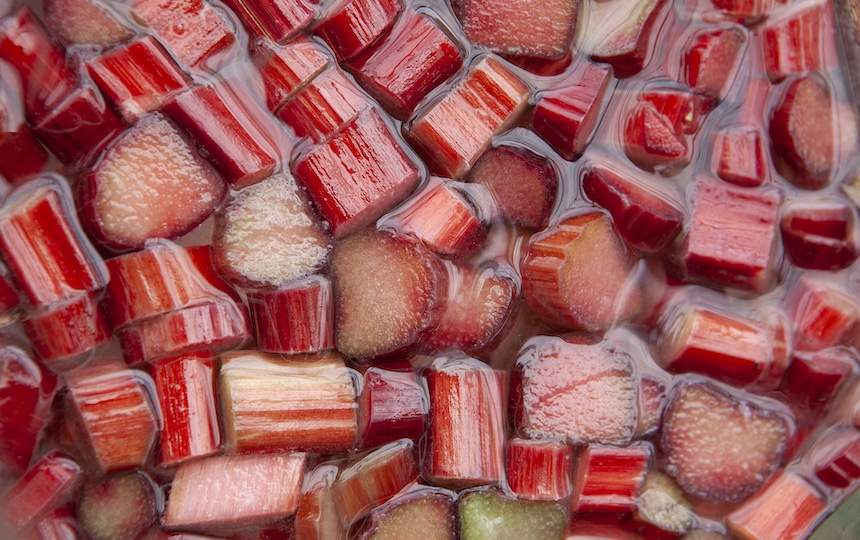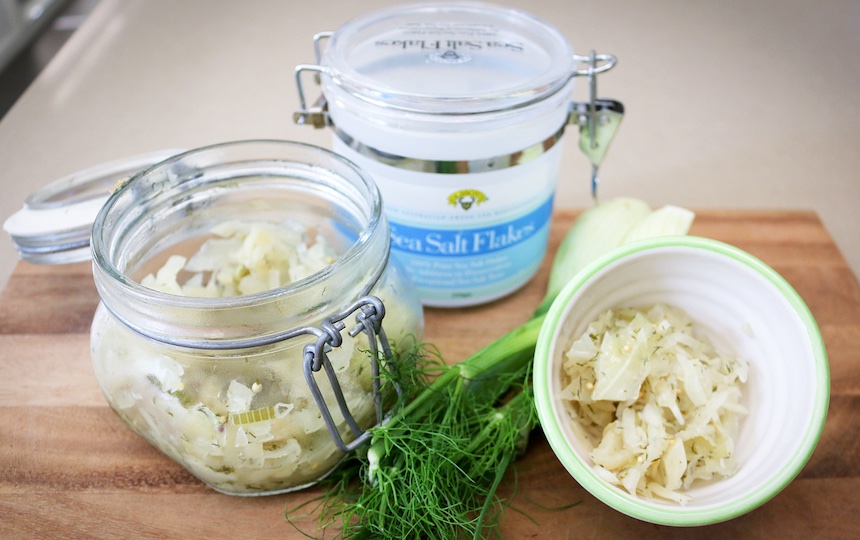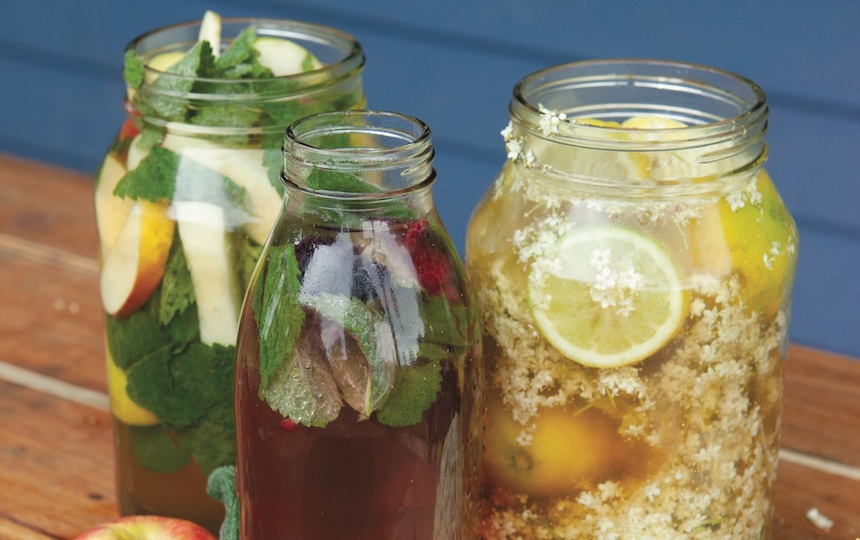We reveal the nine health benefits of fermented foods and how to introduce these foods into your diet.
When I first heard about permaculture I was drawn to how it provides tools for living in sync with the planet, as a designed approach with ethics and principles. What I wasn’t prepared for was how it could be applied to so many aspects of life.
So, when I was introduced to lacto-fermentation it was no surprise that it did the same thing, but on a microbial level: we have a gut food web similar to the soil food web, which can be nourished, maintained or killed by the choices we make.
Consuming fermented foods and drinks promotes diversity of gut microbes, builds resilience in our immune function and has other benefits. Fermenting uses microbes in, on and around us to create foods that benefit our gut and bodies: microbes consume sugars and create enzymes and vitamins, and perform other digestive functions.
During fermentation beneficial microbes work together, sometimes as a colony referred to as a culture or a ‘symbiotic colony of bacteria and yeasts’ (SCOBY). We can manipulate the fermenting environment to favour the desired outcome, for example to preserve food.
Humans have 100 trillion good bacteria in and on our bodies, most in our guts. We are a microbial host, where the microbial DNA outnumbers cellular DNA by 10:1. What we consume matters.
Health benefits of fermented foods
As Hippocrates stated over 2,000 years ago, ‘all disease begins in the gut’. Nutrition is determined by what we consume and absorb, so a healthier gut means a healthier person. Stress and a toxic chemical overload in modern lifestyles can reduce the diversity of beneficial bacteria in the gut, and result in an imbalance that leads to poor gut function.
Fermented foods and drinks are full of beneficial microbes that help with digestion, cleansing and the absorption of nutrients in foods. They inoculate the digestive tract with beneficial microbes that crowd out available space for pathogenic bacteria which cause many modern chronic health issues.
Researchers also believe that consuming fermented foods and drinks can improve mental health through brain function linked to gut health.
Health benefits of fermented foods include:
- diversity of beneficial bacteria
- strengthened immune system
- assisted digestion
- improved mental health and moods
- vitamin synthesis
- controlled sugar cravings, and assisted weight loss
- increased energy
- clear skin
- fewer food allergies, inflammatory responses and internal fungal issues.
How to ferment and reap the health benefits of fermented foods
The key to fermenting is to create an environment for beneficial microbes to thrive, while not favouring those that putrefy. For example, some need air (aerobic) and others don’t (anaerobic). I’ve suggested some recipes.
How to incorporate fermenting into your life
Start small, diversify the ferment types or timing, and accept the feedback from your body. More does not mean better – a single teaspoon may contain millions of live microbes. Sauerkraut is a great ferment to start with, as are kombucha tea and kefir.
When you introduce unfamiliar fermented food or drink to your diet you may experience an unwelcome reaction because you’re introducing a huge number and diversity of gut bugs.
This may affect your digestion and/or cause inflammatory responses, and could result in toxins being released if pathogenic bacteria die off in large numbers. If you have serious health issues these may need to be resolved before you start consuming ferments.
Fermented tonics are made easily at home from simple ingredients and are great pick-me-ups as they cleanse, re-energise, rehydrate and build immunity in the body.
Growing culture – building community
Fermenting not only works with microbe cultures to transform foods and drinks; by consuming them, fermented products supply the same diversity to gut flora. A beautiful additional benefit is that fermenting has a way of building human communities and culture.
SCOBYs multiply with every batch, so they could continue to ferment larger batches, but there is a limit to how much one person can consume. It makes sense to ferment what you can consume, and share excess cultures so that others can enjoy them; you then also have a backup if your SCOBY fails and dies.
Fermenting vegetables in season, when they’re abundant and cheap, avoids waste and makes it easier to share the produce – preserving makes things last. This can bring people together, and build resilience and food security in communities. The current fermenting fervour is also reviving food traditions and connections to cultural heritage.
The versatility and practicality of fermenting makes sense. It provides hands on, simple, effective and delightfully creative ways to preserve harvests.
You can find the full version of this article in issue #3 of Pip Magazine, available here.
References
Savage, DC 1977, ‘Microbial Ecology of the Gastrointestinal Tract’, Annual Review of Microbiology, vol. 31, pp. 107–33.
Leym, RE, Peterson, DA & Gordon, JI 2006,’Ecological and Evolutionary Forces Shaping Microbial Diversity in the Human Sntestine’, Cell, vol. 124, p. 837.

